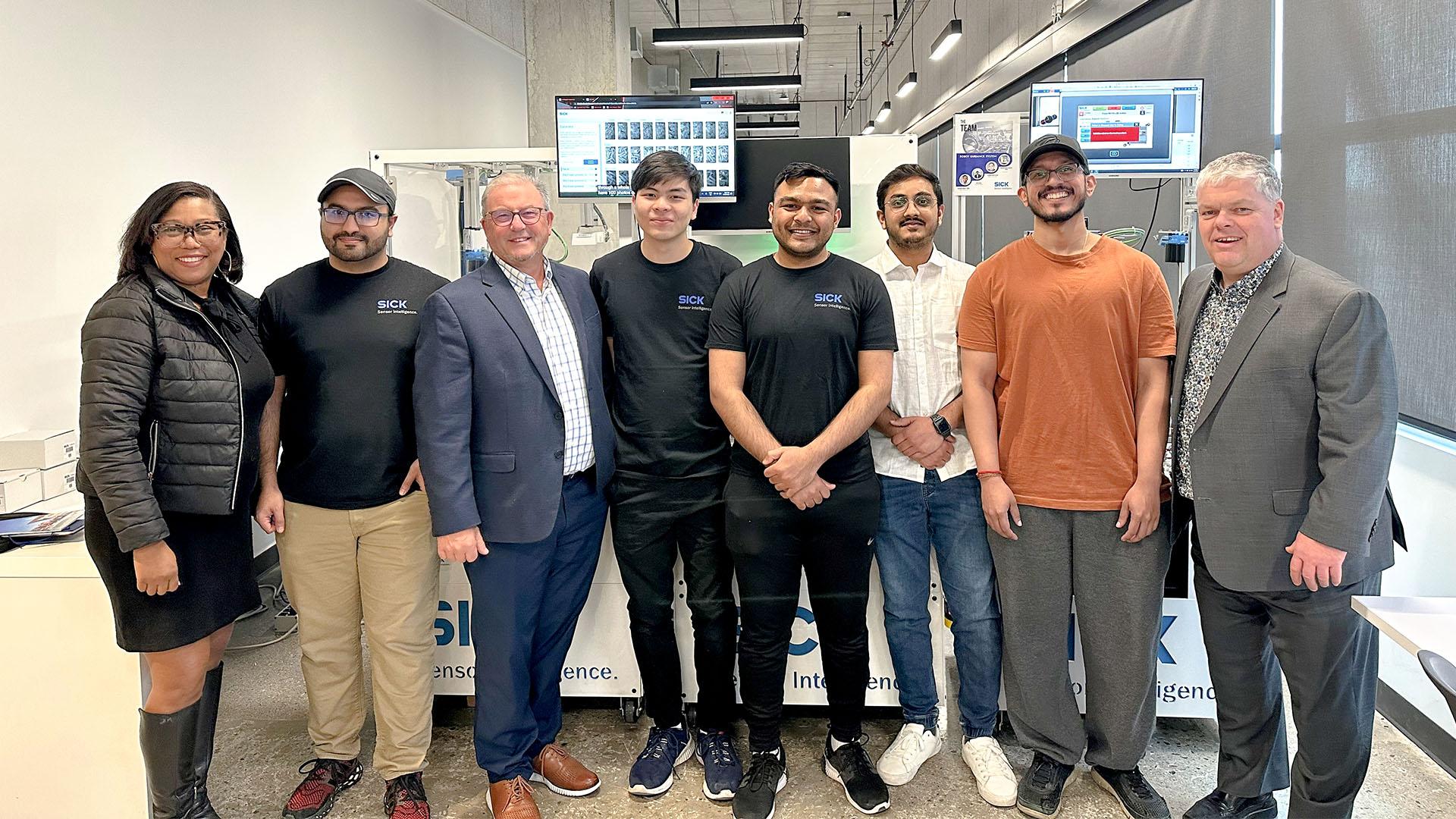
The Barrett Centre for Technology Innovation (Barrett CTI) is helping students succeed by giving them the opportunity to use and apply skills and knowledge they have learned in class in the real world, and the chance to master cutting-edge technologies and the latest processes used in industries.
Two of the founding partners of the Barrett CTI’s Advanced Manufacturing Skills Consortium provided opportunities for collaboration between faculty and students.
SICK Sensor Intelligence, one of the world’s leading sensor solutions manufacturers, came to the Barrett CTI with an idea – to create small-scale portable demonstration units that could be taken to trade shows and customer sites to exhibit their new technologies. That need was transformed into three capstone projects for final year Electromechanical Engineering Technology students.
One of the systems showcases SICK’s sensor technology relating to robot guidance. It uses sensors to track parts and send coordinates to a robot to pick up items and place them in their correct location.

Vaibhavkumar Shastri, who graduated from the Electromechanical Engineering Technology program in the spring, served as the lead on this project.
Shastri mentioned that the students on the team were able to take the knowledge gained in the classroom and translate it into skills that can be used in real-world industry settings.
"Being part of this project was truly a transformative experience. It was the opportunity of a lifetime to work with industry professionals and to react to the demands of industry. In order to be prepared for the projects, you must prepare yourself for the commitment,” added Shastri as the projects spanned eight months comprising a four-month design phase and a four-month build.
The remaining projects demonstrated SICK Sensor Technology pertaining to Industry 4.0, Machine Learning, Artificial Intelligence and Auto ID capabilities by gathering and transmitting data to networked devices, training itself to recognize photos through pattern recognition and deep learning to produce an evaluation that is deployed to the device. In all, ten students had the opportunity to bring their ideas to life, hone the critical skills needed for the jobs of today and the future, as well as build their professional network in the industry.
Another Advanced Manufacturing Skills Consortium partner, KUKA Canada, provided an additional collaborative project opportunity. This project was intended to be an integrated system that takes orders from users and prepares personalized cups of coffee.
This system demonstrated the capabilities of a KUKA KR6 R700-2 robotic arm. The system allows users to send in an order for a coffee, pick the selected coffee pod flavor, add milk and sugar as per user’s request and use a coffee machine to brew the beverage.
Electromechanical Engineering Technology graduate Santiago Guarin Moreno served as the lead programmer and electrical assistant on the project.
“This was a fantastic opportunity for exposure to new technologies and to gain experience on a robot with a complex application, not simply a pick and place application, but where it's a bit more dynamic,” said Moreno.
“It was a very big opportunity to grow my programming skills and electrical skills.” added Moreno.
One of the key learning takeaways included the development of the student’s change management skills, along with their ability to adapt to industry needs and real-world challenges. Through close collaboration with Kuka, the team of four students and faculty members had a positive learning experience and were able to complete the project successfully.